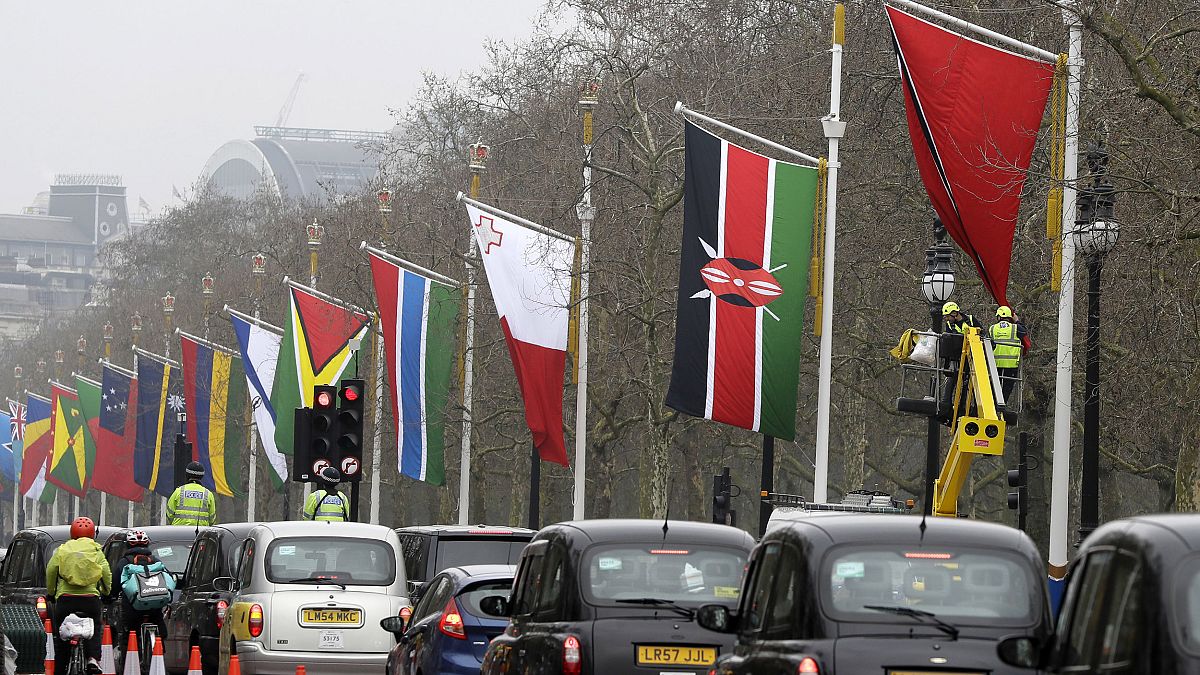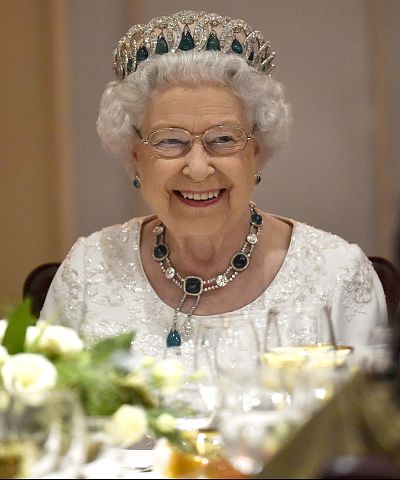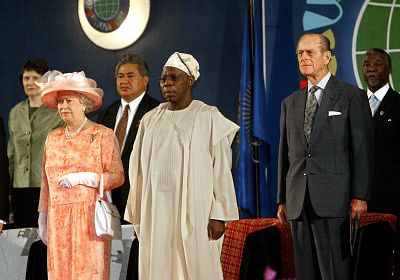There is no sign that Britain's former colonies are rushing to rekindle old ties.
LONDON — With Britain less than a year away from leaving the European Union, but yet to secure any new trade deals, London is eyeing former colonies for help fill its post-Brexit trading hole.
Leaders of the 53 Commonwealth countries gather in London this week for their biennial summit, feted by royals including Queen Elizabeth II and princes William and Harry. It is the first Commonwealth Heads of Government Meeting since Britain voted in a June 2016 referendum to leave the European Union.
British minister Tariq Ahmad told a committee of lawmakers last week that the summit provided a "huge opportunity" to advance deals while divorce negotiations with the E.U. drag on toward the exit deadline of March 2019.
"Britain is going to desperately need export opportunities," said Professor Alan Winters, director of the U.K. Trade Policy Observatory. "If they're not exporting to Mexico or Korea or anywhere else, then it could be to a Commonwealth country."
But there is no sign that Britain's former colonies are rushing to rekindle old trade ties.
Indeed, there is skepticism that Britain will have much choice other than to keep trading with E.U. countries, but on less favorable terms, when it leaves the 28-member bloc. Even government officials have reportedly dismissed the idea of a renewed Commonwealth relationship, describing it as "Empire 2.0."
One third of the world
As the British Empire began to crumble toward the end of the 19th century, a new constitutional relationship was needed as its colonies began to seek independence. A new principle of association, on equal terms with the motherland, was agreed to in 1926 and has been modified over the years to include ethical criteria such as human rights and democratic governance.
Although the queen is the nominal head of the Commonwealth, she is the reigning head of state in only about a dozen nations — including Canada, Australia, Jamaica and the Bahamas — and membership no longer requires total allegiance to the British monarchy.
The Commonwealth is vast — accounting for almost a third of the world's population, 2.4 billion — and includes countries ranging in size from India (1.26 billion people) to Tuvalu (100,000). It is also expanding; Gambia rejoined in February after the removal of its longtime authoritarian leader, Yahya Jammeh.
And while Britannia no longer rules the waves, Commonwealth nations hold rights to 78 percent of the world's seas.
However, it is not an official trading bloc or a customs union. Nor does it have any guaranteed commonalities such as visa-free travel, although Commonwealth citizens living in Britain can vote in elections there.
What does exist is a loose, disparate association of nations with shared values and legal or political systems modeled on the British Parliament and courts.
Its London-based administration, the Commonwealth Secretariat, says trade between members is typically 19 percent cheaper than global trade because of soft efficiencies such as shared language, laws and standardized consumer products.
'The empire is dead'
The immense, glittering state ballroom at Buckingham Palace will be packed with world leaders on Thursday as the queen hosts a dinner to open the Commonwealth summit.
The royals will be busy during the weeklong conference; Prince Harry, who is to marry the American actress Meghan Markle on May 19, will open a youth event while Prince William, whose wife, Kate, is pregnant with their third child, will attend a session of the Commonwealth Business Forum.
"We're not trying to recreate 'Downton Abbey' in India," said Richard Burge, chief executive of the Commonwealth Enterprise and Investment Council, which is holding the business forum. "The empire is dead. It was dead long before I was born. It's just a fact of history. But another fact is that there are a lot of trade opportunities for Britain in the Commonwealth."
In particular, he explained, the Commonwealth has high economic growth rates thanks to its younger age profile in comparison to the global average, while its working population is projected to increase along with an expanding middle class. This is in contrast to the E.U., whose working population is predicted to fall.
"Will there be new trade deals at CHOGM because of Brexit? I don't know, but it is a useful reminder that there is an exciting world beyond Europe," Burge said, using the acronym for the Commonwealth Heads of Government Meeting.
Commonwealth officials — who have spent decades trying to bury its image as a British colonial club — are keen to avoid becoming embroiled in Brexit, and the topic is not on the formal agenda.
Another knotty issue is that many Commonwealth countries, particularly India and Pakistan, have specially negotiated access to the E.U. market through Britain's membership; maintaining that access after Britain's departure from the E.U. is likely to be a Commonwealth priority before reaching any new trade deals, the secretariat's trade adviser, Teddy Soobramanien, said.
An early indication of this reluctant mood came last year, when British Prime Minister Theresa May returned from a trip to India without any prospect of a post-Brexit deal because London was unwilling to ease visa rules for Indian citizens visiting Britain.
And while Australia has expressed interest in a deal, its foreign minister, Julie Bishop, made clear during a visit to London in March that Britain would have to forget about remaining in a European customs union — something that many British businesses say is essential.
Perhaps the biggest hurdle, though, is that the Commonwealth accounts for a relatively small part of British trade, affording to official figures. Around 9 percent of total U.K. exports went to the Commonwealth in 2015, against 44 percent to the E.U. and 10.8 percent to the United States. Similarly, Britain sourced only 8 percent of its imports from the Commonwealth against 53 percent from E.U. members and against 18.6 percent from the U.S.
Nor is it clear that the Trump administration will be eager to forge a deal; Washington claims a modest trade surplus with Britain.
"The reality is that dealing with the E.U., in the first instance by rolling over some of the existing trade agreements, and then by securing new terms, is going to be the priority for British business," said Anastassia Beliakova, head of trade policy for British Chambers of Commerce.
Others, however, are feeling less relaxed.
"Brexit is about to get real," said Chris Southworth, secretary-general of the International Chamber of Commerce U.K. "When exporters start having to fill out customs forms, it is going to feel very real."


